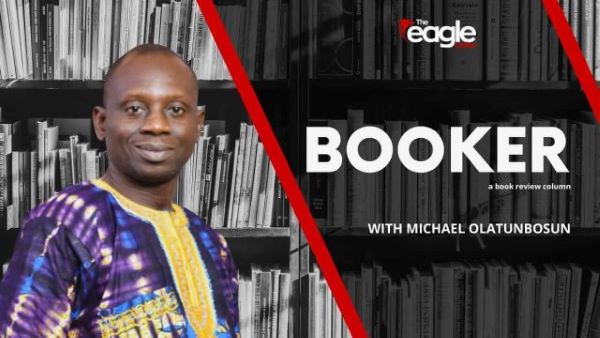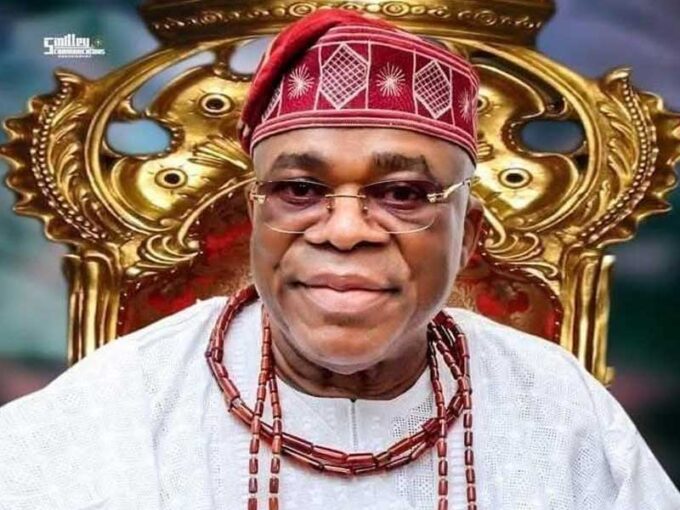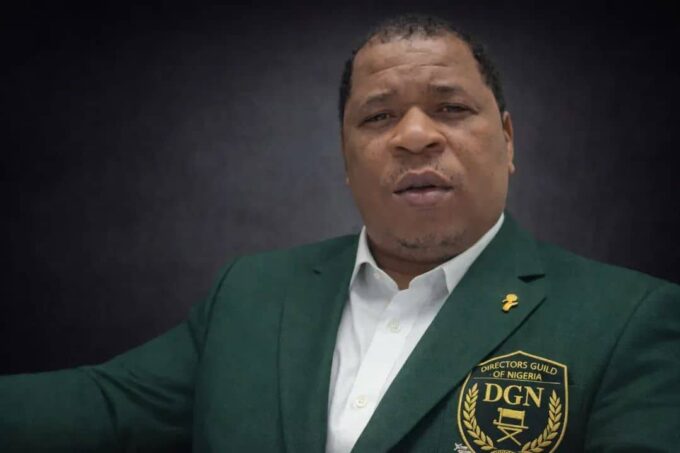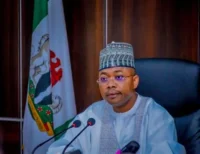The book, titled: “A Supple Dance Around History (2025, Akoosa Publishers),” was written by lawyer and historian, Hon. (Barrister) Femi Kehinde. Like his previous works, Barrister Femi Kehinde stays true to his historical excursion across the Nigerian landscape, giving the reader a meticulously selected array of political, royal, religious and secular heroes.
In this his latest work, he writes about four greatly revered royal fathers across generations, especially in southwest Nigeria. First in his royal roll-call is the now late 57th Awujale of Ijebu-Ode, Alayeluwa Sikiru Kayode Adetona, Ogbagba II, who reigned for 65 years. The author writes about how the young Sikiru Adetona was given the slot which should go to his father. He writes about the coronation and presentation of staff of office to the 26 years old Sikiru Adetona by the then Premier of Western Region, Chief Samuel Ladoke Akintola on Saturday, April 2, 1960.
The author tells the story of the Western Region’s political history through the story of Awujale Sikiru Adetona, especially showing his introduction to the Western Region House of Chiefs on 5th April 1960. He writes about his involvement in government as a minister without portfolio alongside Hon Oba Isaac Babalola Akinwale (Olubadan of Ibadan), Oba Tewogboye II, (Osemawe of Ondo, Oba S.O. Abimbola (Oluwo of Iwo), Oba Obiaka A. Gbennoba (Obi of Agbor) and His Highness, Erejuwa II (Olu of Warri). Included in this first chapter of the book is also the background to the crisis of the Action Group.
The second royal father in the book is Oba Titus Martins Tadeniawo Adesoji Aderemi. Described as a quintessential Yoruba monarch, Oba Adesoji Aderemi was Ooni of Ife for 40 years, having been installed in 1930. The author writes that Aderemi, the first literate Ooni, transformed Ile-Ife into a modern town, bringing telephone services to Ile-Ife in 1938 (p96) “when telephone services were hitherto unknown”, built an official residence for the Ooni, inaugurated (in 1948) and established a newspaper, New Times of Nigeria (1947) as publisher and Chief Obafemi Awolowo as Managing Editor. Accordingly, the author writes (p97) that The New Times of Nigeria “was the precursor of the Nigerian Tribune that was established in 1948 with about 12 investors.”
In the book, A Supple Dance Around History, the author writes glowingly about the Alaafin of Oyo, Oba Dr. Lamidi Olayiwola Adeyemi III. The author recalls an audacious article written by 30-year-old Lamidi Adeyemi in major Nigerian newspapers when Alaafin Bello Gbadegesin Ladigbolu joined his ancestors in 1968. Titled: “I shall be great! I shall be the next Alaafin of Oyo!” the article signalled the culmination of the ascendancy of Lamidi Adeyemi from being an insurance executive to the throne of the Alaafin of Oyo, pronounced Alaafin of Oyo on 18 November 1970 and crowned on January 14, 1971 by the Western Region Government of Colonel Robert Adeyinka Adebayo.
As noted earlier, the author’s knack for weaving multi-layered tales is striking in this book. While telling the story of Lamidi Adeyemi III, he also tells the story of his father, Oba Adeniran Adeyemi II. An intriguing encounter between the Alaafin Adeniran Adeyemi II and his encounter with Chief Bode Thomas (pp227-228) is shared, essentially recalling 22nd and 23rd November, 1953 episode.
Also Read:
Finally on his royalty roll call is the author’s eulogy for Oba Isaac Babalola Akinyele, the Olubadan whom the author described as the one who abhorred fetish and occult practices. Oba Isaac Balalola Akinyele (born 1st April 1882) was Olubadan of Ibadanland between 1955 and 30th May 1964), and the first educated and first Christian to be Olubadan.
The author reports that the ascendancy of Oba Akinyele and the influence his brother, Alexander Babatunde Akinyele (the first Anglican Diocesan Bishop of Ibadan), provoked the upsurge of interest in education, religion, politics and social responsibility among the people of Ibadan. In the estimation of the author, Oba Isaac Babalola Akinyele was a great adherent of the contextualization and acculturation of the Yoruba beliefs.
In the book, Barrister Femi Kehinde writes in celebration of media moguls, legal luminaries, great icons, great businessmen and entrepreneurs, and social crusaders. He writes about Simon Peter Abiodun Ajibade and his sixty years of graceful law practice, describing it as a “twist of fate”. He writes about Dele Momodu, the media giant and Nigerian politician. He also writes about another media veteran, Dare Babarinsa (Pp. 117-135) and his controversial article on Owo history titled, “Three reigns and a new king”, which the author avers “certainly deserves a historical rebuttal and perhaps, the need to also place history in its proper stead.”
In this book, Femi Kehinde writes a tribute in honour of Mallam Umaru Altine, the first elected mayor of Enugu Municipal Council (1952-1958). The author muses here that the story of Nigeria “is a deep, intriguing, and enchanting metaphor” (p79) because its “glorious past had contradicted sharply with its current political conundrum.” His basis for this assertion is found in the fact that Enugu was the capital of the old Eastern Region of Nigeria, and a Fulani man from Sifawa in Sokoto Caliphate had become elected as the first mayor in the heartland of Igbo Nation. He argues that Mallam Altine was a product of Dr Nnamdi Azikiwe’s political nationalistic and cosmopolitan outlook. Altine, a cattle rearer, and completely detribalised Nigerian married an Igbo lady and also rose to become the President of the Enugu branch of Youth Wing of the National Council of Nigeria and the Cameroons (NCNC).
In this book, Hon Femi Kehinde takes the reader on a voyage of progressive discovery of the socio-political history of Western Region, of Nigeria as a whole and of certain outstanding people whose story must be told within the context of the Nigerian milieu. In this regard, he renders for the reader the Apalara murder mystery. This is the story of Alfa Bisiriyu Apalara (1918-1953).
The author writes equally glowing tributes for Teslim “Thunder” Balogun, the Nigerian football giant. He writes about the “tomfoolery and charlatanism” of religion as encapsulated in the tales of some religious adherents even till today. In this wise, the story of Immanuel Olufunmilayo Odumosu, popularly known as “Jesu Oyingbo” is told in one of the most gripping tones. He writes also a great tribute to Adebayo Williams. The author, a politician himself, dedicates a large part of the book to great political icons of the nation. He has here huge eulogies on Obafemi Awolowo, and Adegoke Adelabu “Penkelemesi”. He particularly celebrates Dr Omololu Olunloyo in this book.
Also, the author writes glowingly about Elizabeth Wulemotu Bolade Aduke Kehinde, his mother and the Iyalode Gbongan. Wulemotu is described in the book as a woman of business sagacity. She made successful inroads in business and commerce. She made positive impacts on her community through leadership and engagement, humaneness and philanthropy. She was a prominent actor in the Awolowo/Akinola saga of the First Republic, and led the women vanguards of UPGA in Gbongan.
The author also dilates on the core Yoruba values of resistance, defiance, determination, boldness and doggedness, using the Agbekoya Revolt of 1968/69, and the mystery man, Tafa Adeoye, as a basis.
In the book, A Supple Dance Around History, Hon Femi Kehinde writes about Cocoa House, Ibadan, describing it as a mansion in the sky, and mentioning its architecture, essence and significance in the social, economic and political milieus of Nigeria.
The lawyer cum writer also travels on a nostalgic voyage into the history and impact of the Radio O-Y-O jingles and the media landscape in Nigeria.
The book is a potpourri of the author’s personal reflections and people and places as he knows them. But these personal tributes and eulogies are mostly weaved around the socio-political, economic and cultural history of the Western Region and Nigeria as a whole. The 368 pages of the book are like streets in a meticulously planned city, all intricately placed and dovetailing with one another.
It is a text that attests to the author’s knack for accurate storytelling to give the reader facts of history, education and entertainment. This book is indeed a gem in a nation that needs to be reminded of its own history.
. Olatunbosun, a broadcast journalist, fact-checker and book reviewer at Splash FM 105.5, Ibadan, can be reached via 08023517565 (SMS & WhatsApp only), and miketunbosun74@gmail.com.
Post Views: 11



















Leave a comment